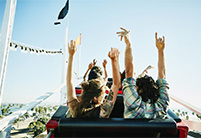Aloha, Families
Aloha, Families
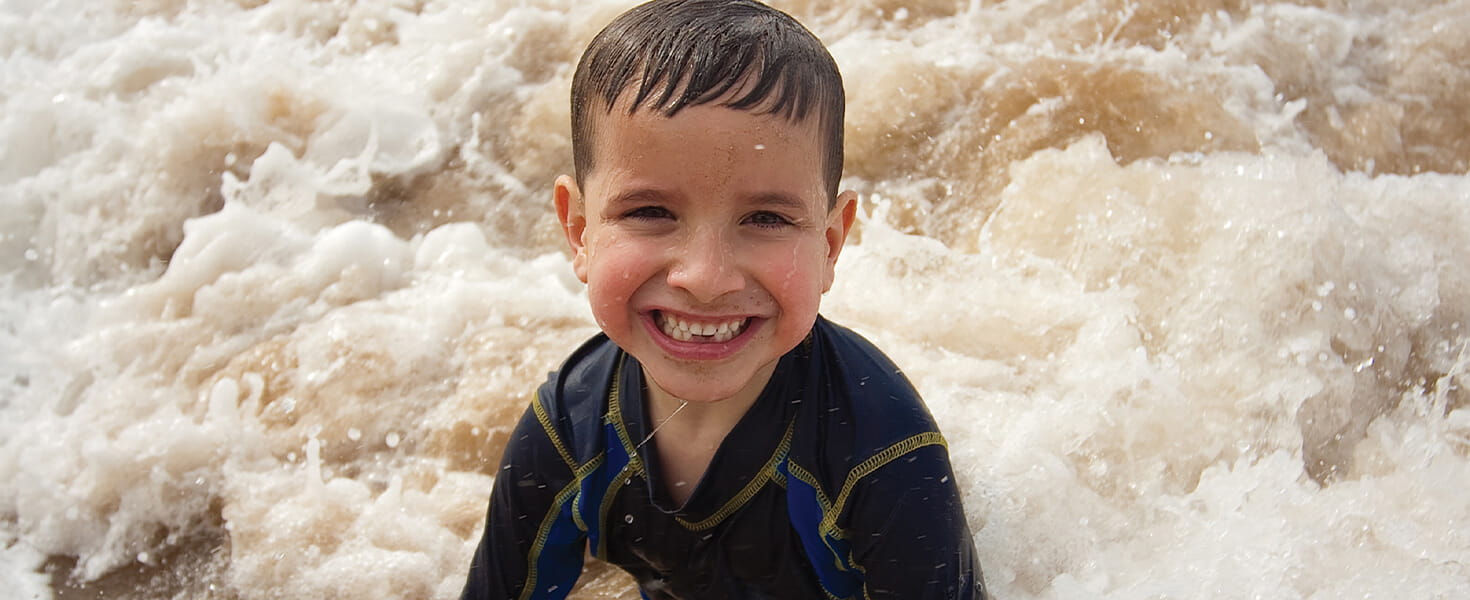
As travel continues to become easier this year and next, some families are looking to Hawaii for a vacation filled with postcard-perfect tropical beaches, brilliant sunsets, and cultural and recreational activities offering multigenerational appeal. From paddling canoes at legendary shore breaks and exploring ancient volcanoes, to getting up close with friendly sea creatures and trekking to pristine valleys virtually untouched by time, Hawaii’s abundance of family-friendly experiences are sure to provide adventures of a lifetime.
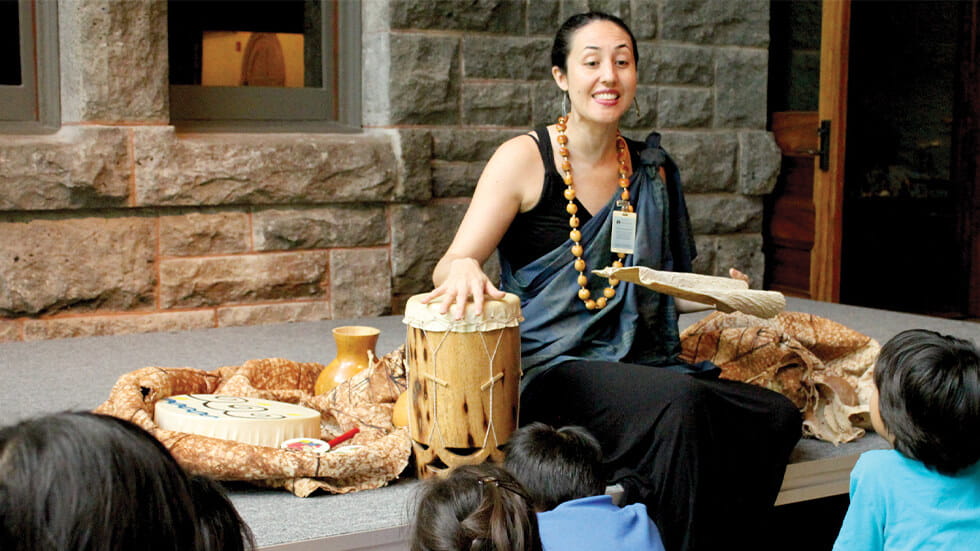
OAHU: EXPLORING A CENTURIES-OLD MUSEUM
Erupting volcanoes spewing molten lava; interactive ocean exhibits with submarines and creatures from the deep; and a close-up look at the fascinating world of insects are sure to mesmerize your family at the Bishop Museum’s Richard T. Mamiya Science Adventure Center, comprising more than 16,000 square feet of science-oriented exhibits created especially for young visitors.
A visit to the science center and the rest of this internationally recognized museum is a great way to launch your exploration of Hawaii. Founded in the 1800s, the museum celebrates island history with a multitude of intriguing exhibits. It’s easy to spend several hours here, admiring the artifacts, paintings and sculptures in galleries devoted to Hawaiian legends and culture.
Many children are also enthralled by the museum’s J. Watumull planetarium, where you can view planets and starry skies, as well as awed by the three-story Hawaiian Hall, with its massive whales, sharks and canoes suspended high in the center atrium. The museum grounds have an abundance of green space where you can meander through the museum’s extensive Na Ulu Kaiwi’ula Native Hawaiian Garden to take in the plants, trees and rainbows of flowering blossoms.
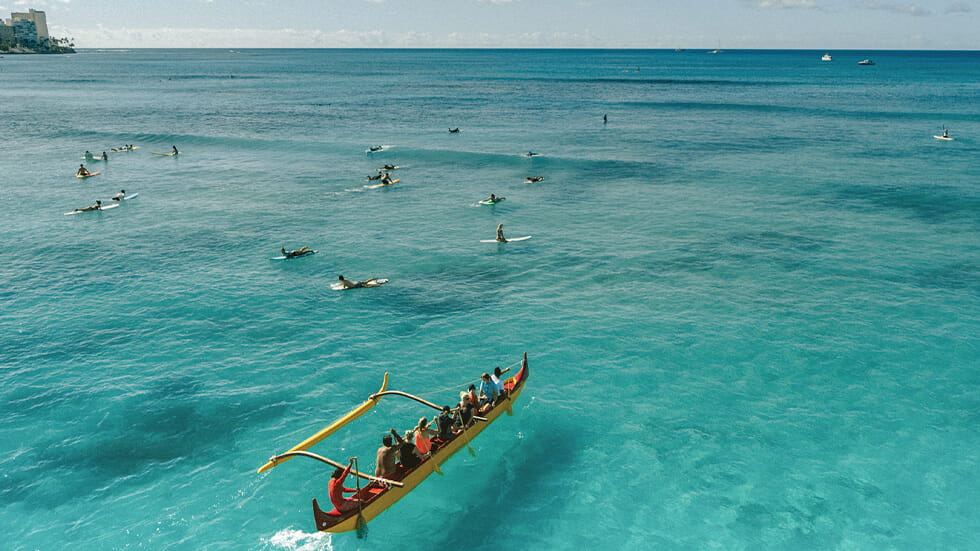
STATEWIDE: PADDLING AN OUTRIGGER CANOE
Riding the waves in a traditional outrigger canoe is a truly magical way to immerse yourself in island culture. These long boats made of koa wood are ancient in origin, as they connect the Hawaiians with their native ancestors who used the canoes for fishing and navigating the ocean some 2,000 years ago.
Today, you will find brightly colored outrigger canoes on a number of beaches across the islands. The boats usually seat six paddlers single file, with the captain situated in the rear. Some excursions include a cultural lesson or a snorkel, while others are simply a joyride atop the waves, the next best thing to surfing. On Maui, outrigger canoe trips are offered in Wailea and Lahaina. On Oahu, the canoes are launched on the beach in front of the renowned Royal Hawaiian resort in Waikiki. (Be sure to make reservations.)
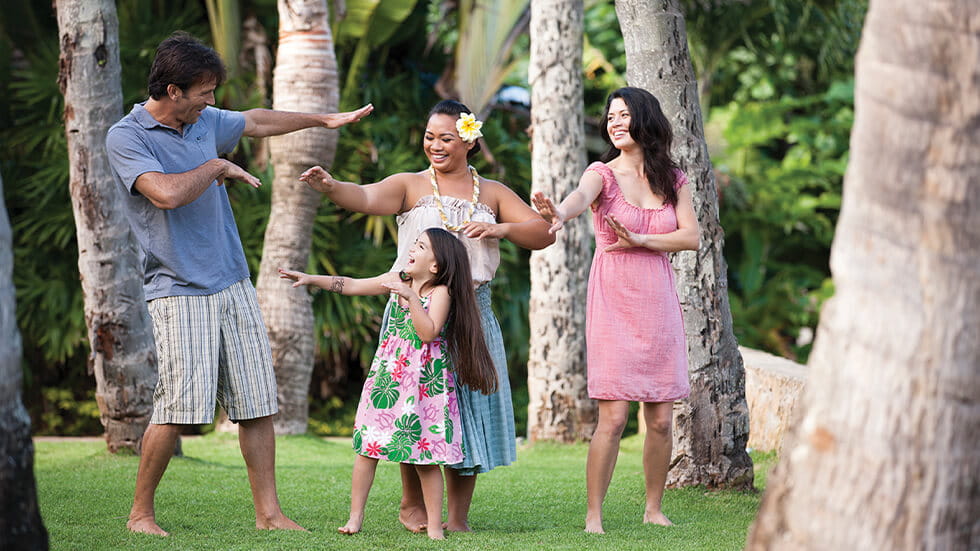
OAHU: DELVING INTO CULTURE AT THE POLYNESIAN CULTURAL CENTER
Immersing yourself in the Aloha spirit is easy at the Polynesian Cultural Center. With more than 40 acres of sprawling tropical gardens, this vibrant attraction invites families to take part in its “Go Native” activities, including cooking, crafts, games and ceremonies. You can also peruse the marketplace showcasing locally made products.
In the evening, enjoy a traditional dinner of Hawaiian specialties, such as poi, poke, lomi salmon and kalua pig roasted in a traditional underground oven, and take in the world-class entertainment, featuring hula performances, fire dances, traditional music and plenty of special effects.
Across the islands, luaus and hula shows are offered in several other locations, too. Oahu’s Paradise Cove in Ko Olina and Maui’s Old Lahaina Luau are long-time favorites, while Kauai is home to the popular luau at the Grand Hyatt Resort at Poipu Beach.
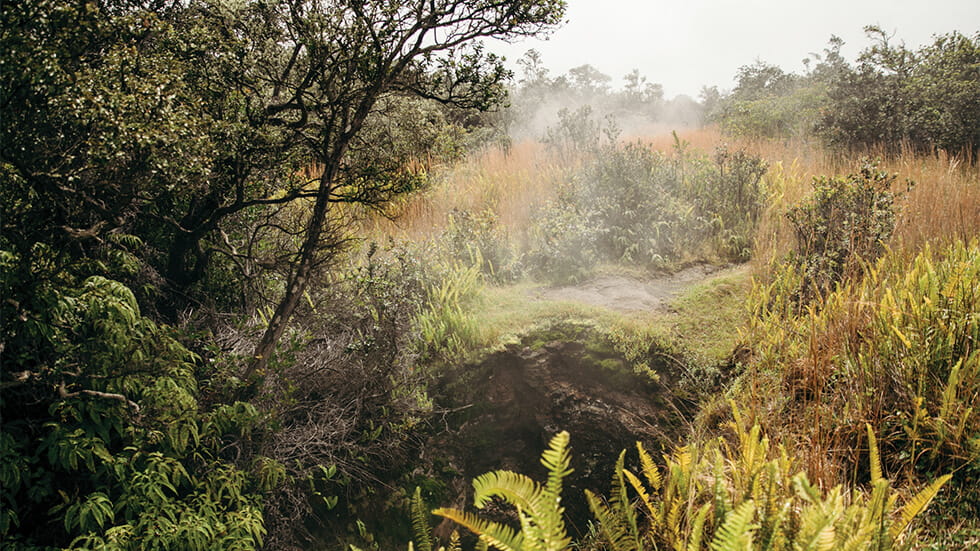
HAWAII ISLAND: DISCOVERING HAWAII VOLCANOES
National Park Featuring two of the world’s most active volcanoes, Kilauea and Mauna Loa, Hawaii Volcanoes National Park is situated some 14,000 feet above sea level and boasts more than 100,000 acres of wilderness. Home to an incredible array of geological, biological and cultural landscapes, the park offers family-friendly hikes, ranger-led tours, and activities galore for kids and adults.
A favorite with families is the Crater Rim drive tour, a self-guided loop with spectacular lookout points and access to hiking trails. Keep in mind that volcanic activity and frequently changing road conditions can cause closures at any time. Also, the temperature drops quickly at the higher altitudes and it’s often rainy, so if you plan to get out of the car at the lookout points, be sure to bring a jacket/raincoat and hat. Of course, if you’ll be hiking, you’ll need sturdy shoes, water and snacks, too.
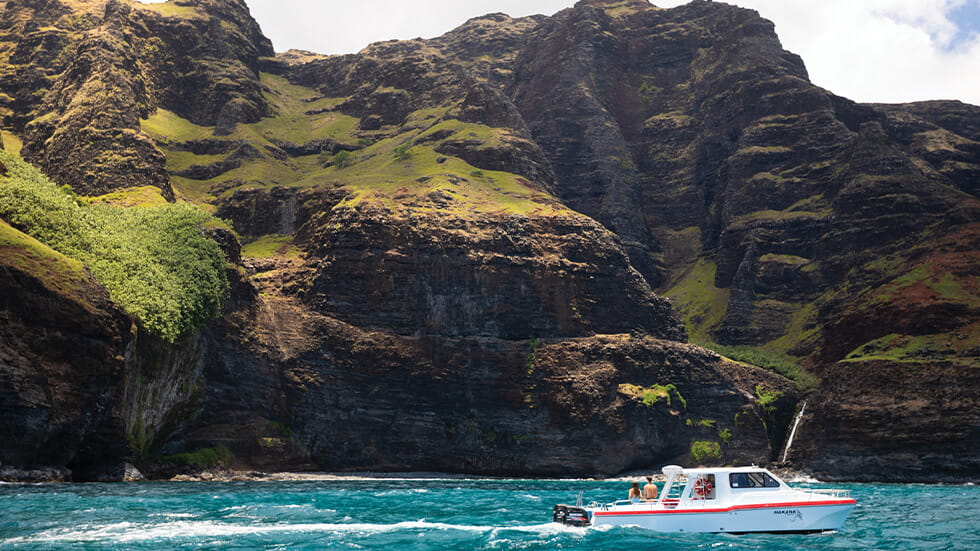
KAUAI: CRUISING THE NAPALI COAST
Most visitors will agree that the optimal way to experience the Napali Coast is from the ocean. A catamaran cruise along this jaw-dropping mountainous stretch of the island’s northern shoreline offers the ideal vantage point to absorb the seemingly endless emerald-hued cliffs in all of their rugged splendor.
The steep terrain winds through five valleys on the island. As you sail atop the waves, you’ll learn about Kauai’s history and legends. If you’re lucky (and depending upon the season), you might also spot pods of dolphins and whales. A variety of Napali sailings are offered, including snorkel excursions, sunset trips and dinner cruises.
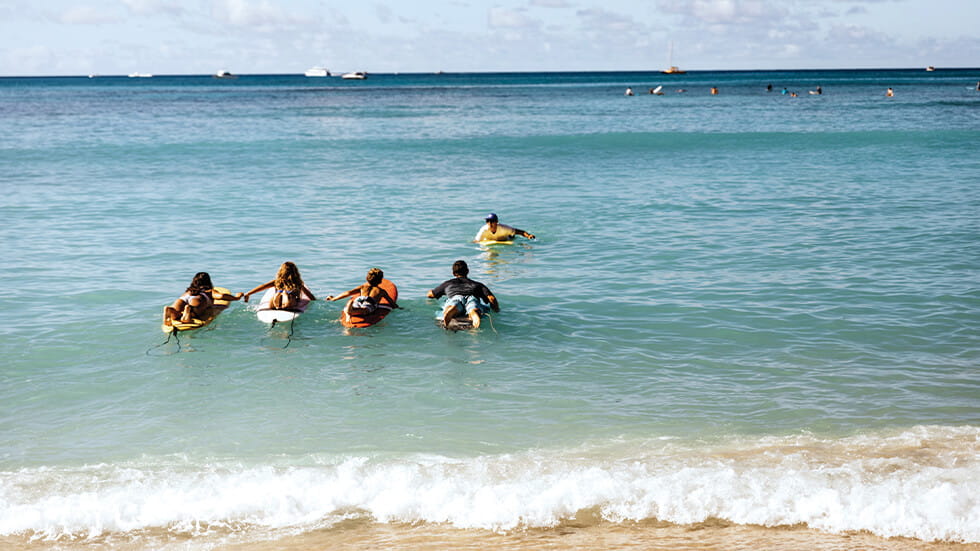
OAHU: SURFING IN WAIKIKI
Against the backdrop of the iconic Diamond Head State Monument, Waikiki Beach is considered among the world’s premier places to learn how to surf. With turquoise-blue waters and long, rolling waves, this crescent of golden sand features everything you need for a great day on the waves: lifeguards, licensed surf instructors, and many places to rent longboards for kids and adults.
Of course, you can find plenty of surfing beaches throughout the Hawaiian Islands, but it’s a one-of-a-kind experience to paddle out to the Waikiki breaks that legendary surfer Duke Kahanamoku called home. Afterward, you can take a selfie with the famous bronze statue of the Duke just steps away on Kuhio Beach. His arms are extended in a warm welcome—he’s the “Ambassador of Aloha,” after all—and are always adorned with colorful leis from admirers.
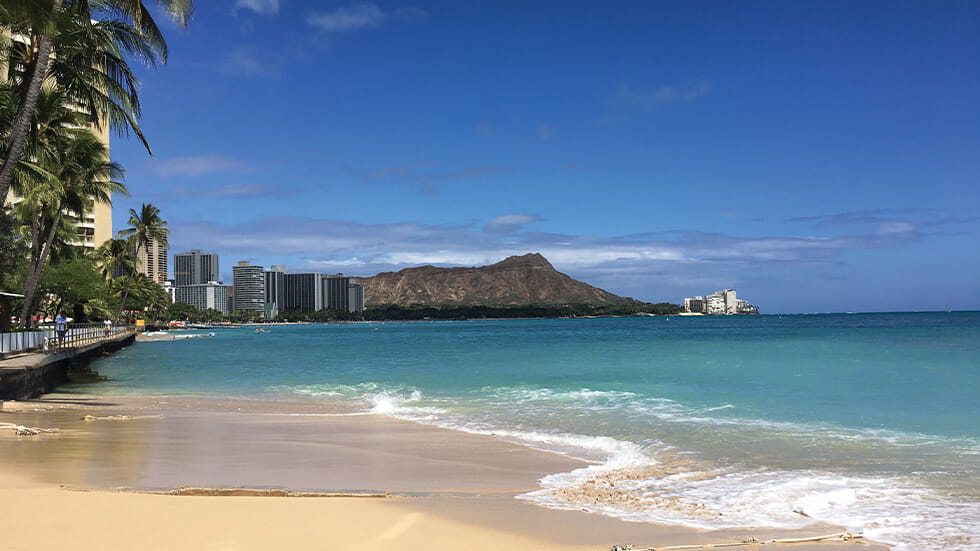
HAWAII ISLAND: VISITING THE WAIPIO VALLEY
Nestled on the northern shore of the Island of Hawaii, the Waipio Valley is an enchanting place. The word “waipio” means “land of curving water,” a reference to the bubbling streams and hidden waterfalls throughout this lush region that’s been virtually untouched for centuries. Dreamlike as it is, a visit here is not for the faint of heart, as the entrance into this secluded valley is the steepest road in the US, with an 800-foot drop within a half-mile. The few inhabitants here live peacefully off the grid, without cell phone service or electricity. Chances are, you may fall in love with Waipio Valley’s ruggedness, too, as you marvel at the tropical rainforest and spot wild horses along the way. Your official local guide—a safety must for accessing this isolated location and exploring the tricky terrain (plus, most rental car agreements forbid driving here)—can also share insights about the natural surroundings and local legends during your guided excursion.
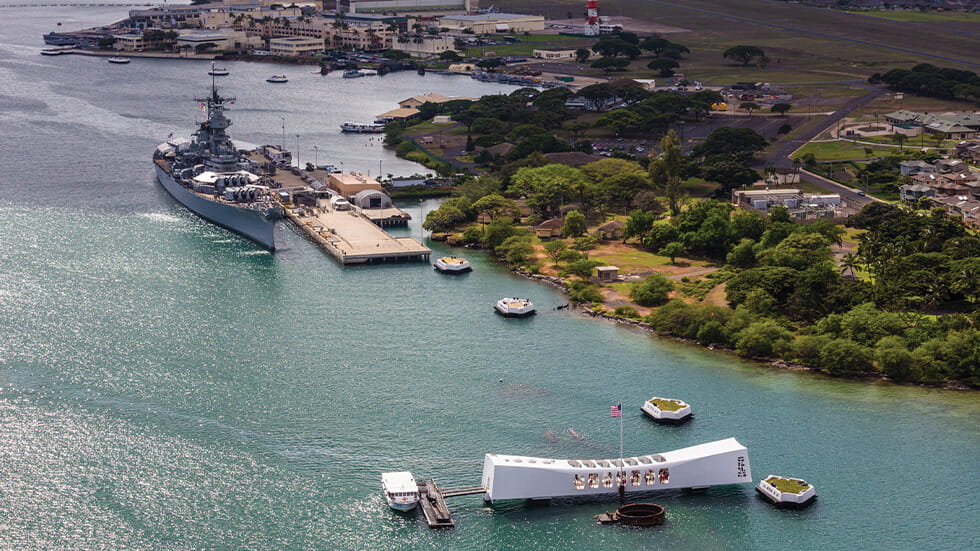
OAHU: PAYING TRIBUTE AT THE PEARL HARBOR NATIONAL MEMORIAL
The most-visited destination on Oahu and a National Historic Landmark, the Pearl Harbor National Memorial allows visitors to solemnly pay their respects at the USS Arizona Memorial, the USS Oklahoma Memorial and the USS Utah Memorial, which honor the more than 2,000 service members who perished in the Japanese attack on December 7, 1941.
A visit to the national memorial is an opportunity to learn about this critical history and commemorate those who lost their lives. Other destinations at Pearl Harbor include the Battleship Missouri Memorial, the site of the Japanese surrender in 1945 that officially ended World War II, the Pearl Harbor Aviation Museum and the USS Bowfin Submarine Museum. Separate tickets are required for each, and reservations are recommended. Plan to spend the day at this memorable site.
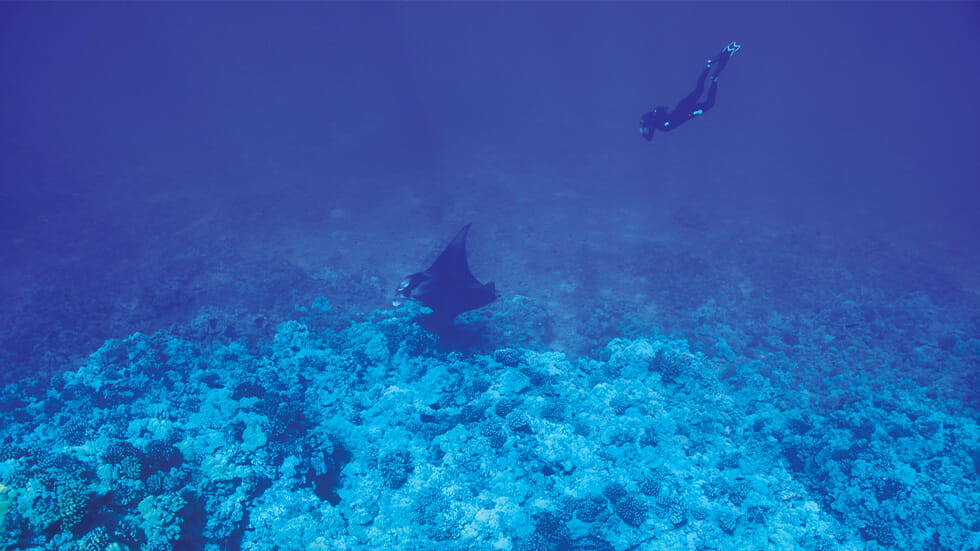
HAWAII ISLAND: SNORKELING WITH MANTA RAYS
An adrenaline-boosting nighttime snorkel off the Kona Coast alongside massive manta rays offers a rare glimpse at these gentle creatures during their evening feeding. The warm waters of Hawaii’s Big Island are the only location on the planet where you can experience this nocturnal ocean adventure.
Snorkelers float atop the waves beneath the starry sky to watch the giant manta rays, which can weigh up to 1,000 pounds and span 16 feet, perform acrobatic dances in the water below as spotlights from divers illuminate their ethereal movements. Several official tour companies offer this professionally guided experience. Wetsuits and snorkel gear are provided (ages 7 and up).
With so many only-in-Hawaii experiences to choose from, families are sure to discover the islands’ allure and embrace the Aloha spirit of this unforgettable destination.
AAA BENEFITS
Great family vacations start with AAA Travel. Visit AAA's Family Travel page for tips and inspiration to plan your next trip.
When you’re ready to start planning your trip, our travel agents can help.




